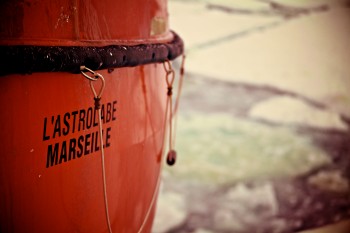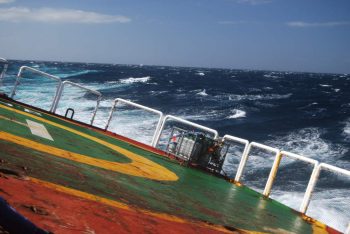Didier Schmitt is a member of the space Task Force at the European External Action Service. He is a regular opinion writer in major newspapers and magazines and has published a book on foresight. He will be contributing to this blog during his visit to Concordiam – this entry was sent from the Antarctic Ocean:
Even though the Astrolabe is a medium-size ship (65 m) it is not easy to find your way at first. It reminds me of the movie Alien. The boat is indeed like a spacecraft, fully autonomous and meant for expeditions. We had ample time to get familiar with the ship as we were grounded in Hobart waiting for a helicopter and its pilots to arrive. We had another 24-hour wait afterwards due to a strong storm.
Like in space programmes, there are numerous nationalities. On board we have: Australians, French, Indonesians, Italians, Japanese, Spanish, Swiss, Ukrainians, and Americans.
Half a day after departure sea sickness kicked in, much like space sickness on the International Space Station. At least half of our crewmates do not
show up on the main deck, even though the waves are “only” 8 m high. The boat floats like a cork in a river as it has a flat bottom. Up to now the ship’s captain only had access to low-resolution satellite imagery from the Modis instrument (250 m resolution) to help him plan his route through the ice. The Copernicus services can do much better, especially with the Sentinel-1 that uses radar. A week before departure from Europe I started a pilot project using the new Copernicus service programme from the EU’s DG GROW. It is contracted out to the European Maritime Security Agency, they had never programmed the satellites in this region until now.
Crossing the ice pack will not be easy: the ice quality and quantity changes constantly due to strong winds and currents. I liken it to crossing a meteorite belt. Before leaving from Hobart we got the first imagery and the ship’s captain is fascinated by what he has seen. The challenge is to get the latest images before reaching the 60st southern parallel. Another obstacle is communication as our Inmarsat link has very limited throughput. We will see how that goes.
Cheers from the middle of the Antarctic ocean.






Discussion: no comments